Stories

How a key nutritional program adapted to the pandemic
December 1, 2021
As the COVID-19 pandemic created economic hardship and food insecurity for many families, a key governmental program for nutritional support pivoted to offer remote services and more flexible food options. As a result, participation and satisfaction with the program grew, according to findings from a new study by University of Washington researchers and the program,...
Read more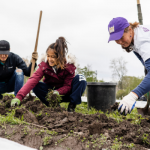
New website highlights food systems experts and educational opportunities across UW
October 28, 2021
A new Food Systems at UW website has been launched to provide a central resource hub of people, organizations, and educational opportunities related to food systems at UW. The website was initiated by the UW Food Systems Education and Research Network, and this network aims to: Bring together UW experts from multiple disciplines to address...
Read more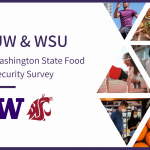
WAFOOD food security survey now open to WA residents
July 15, 2021
Revised 10/9/24: This post was revised to remove links to an earlier survey that is no longer active. Please visit the WAFOOD project page to find the latest links to current surveys and information. A third wave of the WAFOOD Survey is now active, and asks all Washington State residents over the age of 18...
Read more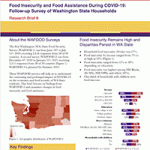
Reliance on food assistance programs on the rise in Washington State
May 11, 2021
Food insecurity remains high and disparities persist among Washington State households, while reliance on food assistance programs across the state have risen over the past six months, according to new data published by the University of Washington Center for Public Health Nutrition. The latest report from the WAFOOD research team compares data from two surveys,...
Read more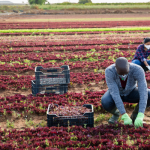
How farms and ranches in Washington have been impacted by COVID-19
March 31, 2021
Nearly 60% of farms and ranches in Washington State have been negatively impacted by COVID-19 in 2020, and expect to make changes to adapt their businesses in 2021, according to a new report published by the University of Washington Center for Public Health Nutrition in collaboration with Washington State University and the Washington State Department...
Read more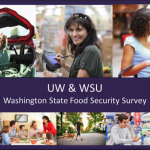
WAFOOD survey receives support from the Paul G. Allen Family Foundation
January 26, 2021
Among the several non-profit organizations and programs receiving recent emergency funding from the Paul G. Allen Family Foundation, the University of Washington Foundation has received a gift in support of the WAFOOD food insecurity survey. The Paul G. Allen Family Foundation has to date provided $12 million in emergency funding to provide relief to the...
Read more
UW and WSU collaborate to advance food systems education in Washington
October 7, 2020
The University of Washington and Washington State University are embarking together on a project to strengthen and transform food systems education in Washington State. The two institutions have been jointly awarded a Higher Education Challenge planning grant by the National Institute of Food and Agriculture (NIFA), an agency of the U.S. Department of Agriculture (USDA)....
Read more
Food insecurity in Washington State highest among low-income groups and persons of color
September 24, 2020
Food insecurity has spiked post Covid-19, affecting an estimated 30% of households in WA State and bringing many pre-existing social inequities to light. Highest rates were observed among households below the poverty line (58%), with some college education or less (44%), and for persons of color (42%). Households with children were also affected. Of the...
Read more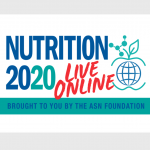
Faculty and students present at Nutrition Live Online 2020
June 1, 2020
Four members from the Nutritional Sciences Program will present this week at a free online event this week called Nutrition Live Online 2020, an event sponsored by the American Society for Nutrition (ASN). Adam Drewnowski, director for Nutritional Sciences and the Center for Public Health Nutrition will participate in a panel on sustainable food systems,...
Read more
New study to evaluate COVID-19 impacts on Washington State food security
May 4, 2020
As the COVID-19 pandemic unfolds, how and to what extent households are able to access food continues to change in the U.S. and across the globe. What are the impacts to our food supply and food security in Washington state? A new UW study funded by the University of Washington Population Health Initiative and the...
Read more